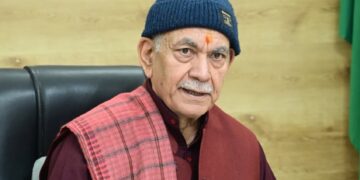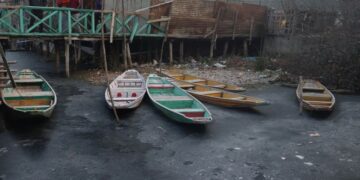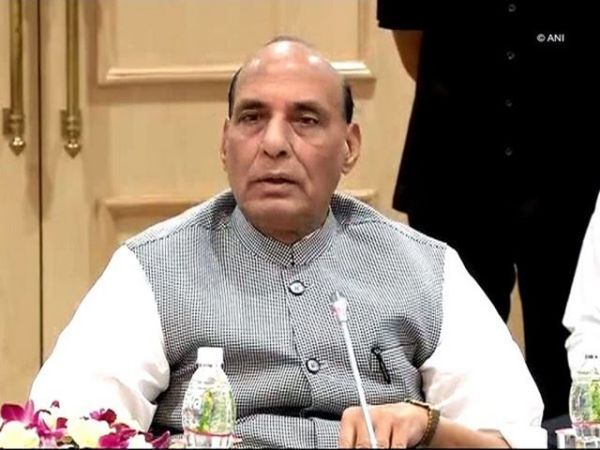Lahore/New Delhi, Aug 31: India and Pakistan have agreed to undertake the Indus Waters Treaty mandated tours by their Commissioners in the Indus basin on both sides to resolve issues on the various hydroelectric projects, including the Pakal Dul and Lower Kalnai in Jammu and Kashmir.
After the conclusion of the two-day high-level bilateral talks on the Indus Waters Treaty here, the first official engagement between India and Pakistan since Imran Khan became Prime Minister on August 18, the External Affairs Ministry said deliberations were held on further strengthening the role of the Permanent Indus Commission (PIC) for matters under the 1960 Treaty.
As per the provisions of the treaty, technical discussions were held on implementation of various hydroelectric projects under the provisions of Indus Waters Treaty including Pakal Dul (1000 MW) and Lower Kalnai (48 MW) in the state of Jammu and Kashmir.
Both the countries agreed to undertake the Treaty mandated tours of both the Indus Commissioners in the Indus basin on both sides, the ministry said in a statement in New Delhi.
It was agreed to hold the next meeting of the PIC in India on mutually convenient dates.
According to news reports in Pakistan, India has invited Pakistani experts to visit the sites of the Pakal Dul and Lower Kalnai hydropower projects on the Chenab river next month to address Islamabad’s concerns over the construction of the projects.
During the talks India rejected Pakistan’s objections to the construction work, Dawn newspaper reported.
“India has hinted at continuation of the work on both the hydropower projects,” an official said.
Earlier, both delegations reiterated their stance over the construction of the projects. The Indian Water Commission led by Commissioner P K Saxena reviewed Pakistan’s objections minutely. It also presented its point of view, the report said.
The Pakistani side was led by Commissioner for Indus Waters Syed Meher Ali Shah.
According to the paper, Pakistan’s demands included reduction of the height of Pakal Dul’s reservoir up to five metres, maintenance of 40-metre height above sea level while making spillways’ gates of the Pakal Dul project, besides clarifying the pattern and mechanism for the water storage and releases and some technical concerns over design of the Lower Kalnai hydropower project.
India and Pakistan signed the Indus Waters Treaty in 1960 after nine years of negotiations, with the World Bank being a signatory.
The water commissioners of Pakistan and India are required to meet twice a year and arrange technical visits to projects’ sites and critical river head works, but Pakistan had been facing a lot of problems in timely meetings and visits.
The last meeting of the Pakistan-India Permanent Indus Commission was held in New Delhi in March during which both the sides had shared details of the water flow and the quantum of water being used under the 1960 treaty.
The treaty sets out a mechanism for cooperation and information exchange between the two countries regarding their use of the rivers. However, there have been disagreements and differences between India and Pakistan over the treaty.
The water commissioners of Pakistan and India were required to meet twice a year and arrange technical visits to projects’ sites and critical river head works, but Pakistan had been facing a lot of problems in timely meetings and visits.
Under the provisions of the Indus Water Treaty 1960, waters of the eastern rivers — Sutlej, Beas and Ravi — had been allocated to India and the western rivers — the Indus, Jhelum and Chenab — to Pakistan, except for certain non-consumptive uses for India.








